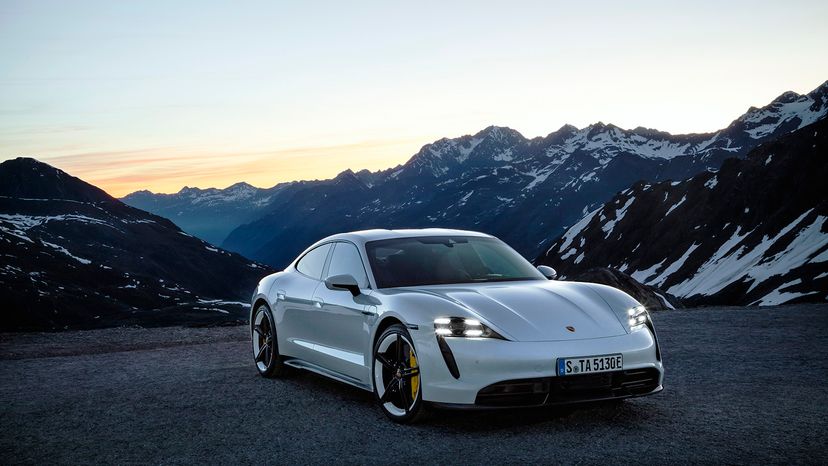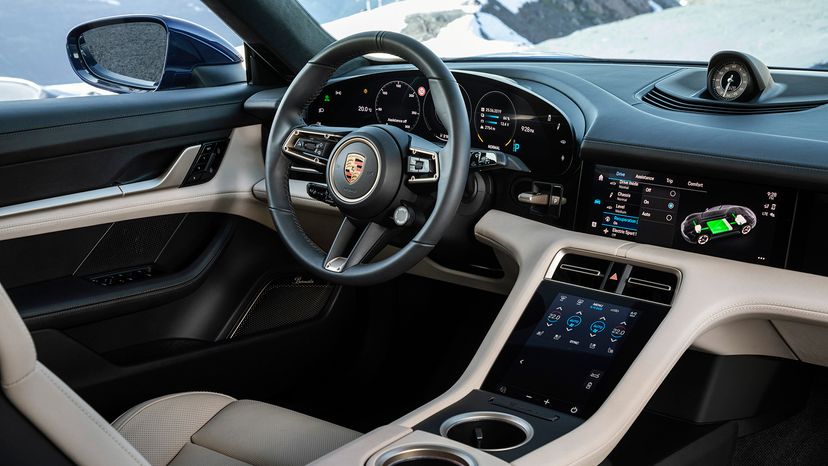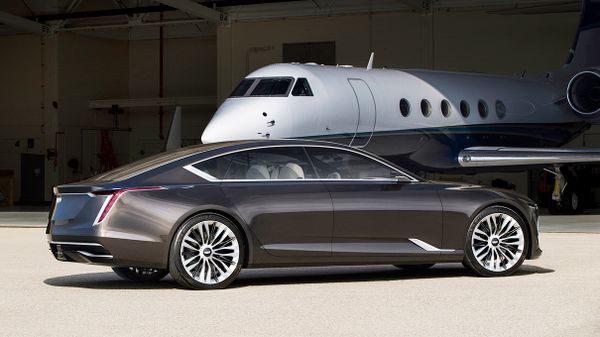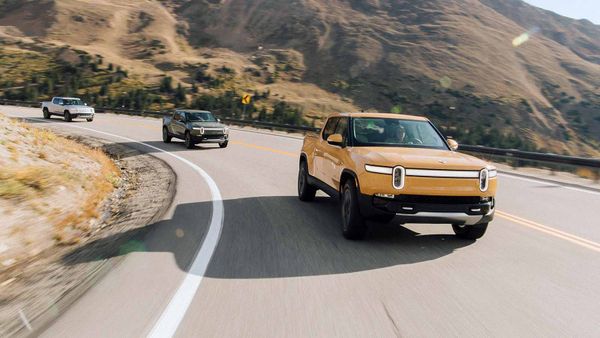The Taycan also offers Porsche's first leather-free interior, which features upholstery and other cabin finishes made from recycled materials. Porsche says this is a move designed to support the notion of the Taycan's sustainability. The car also includes a cool cockpit with a curved instrument cluster, large infotainment display (and an optional passenger display) that all respond to the command "Hey Porsche." Hey, that's cool.
The sporty exterior of the Taycan looks, well, totally like a Porsche, but it's clear that this car marks a turning point for the car company. "The Taycan links our heritage to the future. It carries forward the success story of our brand," Porsche's Chairman of the Executive Board, Oliver Blume, said in a press statement. "This day marks the start of a new era."
The Taycan's technological advancements are a big step forward for electric cars. After the initial run of high-performance Taycans hits showrooms, Porsche will roll out less powerful (and ostensibly, more affordable) Taycan models, including the Taycan Cross Turismo, a low-slung electric wagon slated to go on sale in late 2020.
By 2022, the automaker says it plans to have invested more than $6.6 billion in "electric mobility," which supports the widespread theory that this is a significant turning point for the brand. In other words, electric Porsche cars may soon be the norm.
The 2020 Taycan will begin arriving at Porsche dealers later in 2019, and is slated to join Porsche's Passport subscription service in early 2020. The base Taycan Turbo will have an MSRP of $150,900, while the Turbo S will start at $185,000. At those prices, the Taycan is not an immediate threat to Tesla, though Porsche says it hopes to offer sub-$100,000 Taycan models down the road.



